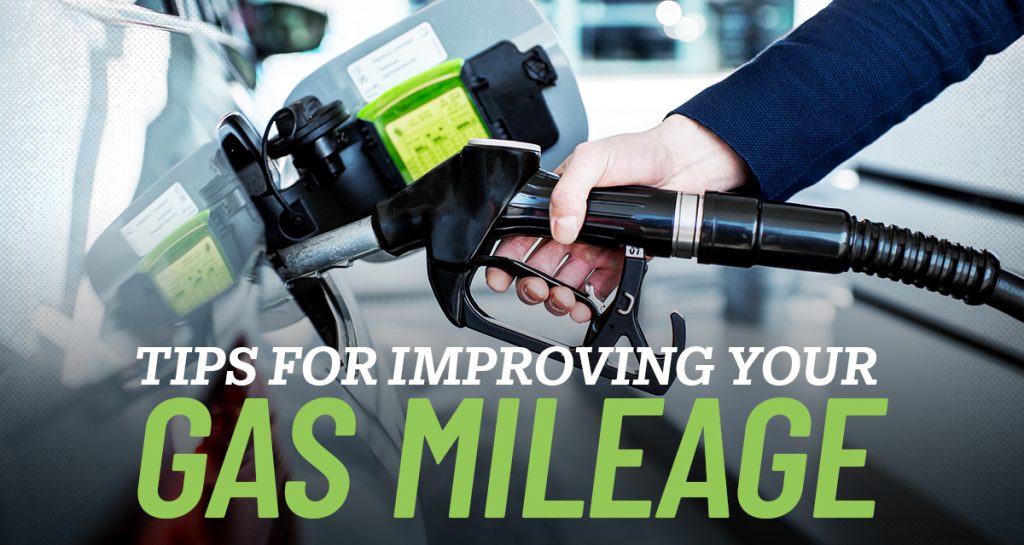Gas is expensive, so it’s important to get the most mileage per gallon possible. It will not only save you money, but it’s also better for the environment. And if you think there’s not much you can do to increase your gas mileage – other than getting a new car – you’re mistaken. We’ve assembled some helpful tips below to help ensure you get the most bang for your buck and keep your car driving at peak efficiency.
Watch your tires.
It sounds like a little thing, but ensuring your tires are all inflated properly can make a difference with your mileage. That means keeping a handy dandy tire pressure gauge with you and regularly checking your tire pressure, and adding air as needed. Regularly getting your tires rotated and balanced will also help them wear more evenly and improve your mileage.
Lighten the load.
Just like it would be harder for you to run a distance if you were carrying weights, your vehicle burns more fuel if you keep a lot of weight in the trunk (or truck bed). Removing items you don’t need and lightening the load can help your car perform better.
Get in alignment.
If you feel like your car is pulling a bit to one side or vibrates while you are driving, you may be in need of a front-end alignment. When your car is misaligned, it has to work harder, burn more fuel, and can also wear out your tires.
Slow down.
Most drivers don’t like to hear this tip, but rapid acceleration as well as plain old speeding burns fuel faster and lowers your gas mileage. As a rule of thumb, you save about 7% on gas consumption for every 5 mph you slow down.
Brake less.
Braking excessively can really lower your gas mileage. While you might not be able to avoid stop-and-go traffic, riding the brake can add stress to your car as it struggles to stop tons of weight, which in turn negatively impacts your fuel consumption. Pay attention to your braking habits, and be sure to get your brakes checked regularly so they are performing well.
Replace your air filters.
A quick and easy way to increase your fuel economy is to replace dirty or clogged engine air filters. When your filters are dirty, the engine has to work harder to draw in air, burning more fuel. Check your air filters and switch them out regularly for improved mileage.
Don’t be idle.
Idling – running your engine when the car is not moving – is a waste of gas. If you’re sitting at a long stoplight or waiting for your significant other to run some errands in a store, turn your engine off. Some newer cars now do this automatically after a few seconds of idling to improve fuel economy and reduce emissions.
Love learning about cars? Maybe you should consider turning that passion into a career! J-Tech Institute offers hands-on training in their Automotive Technology Program to prepare you for a rewarding and exciting career doing what you love. Contact us today to learn more or to schedule a consultation with our admissions department.
